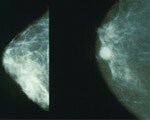Recent research looked at whether women were more likely to experience sexual problems after breast cancer and it was found that 70% of women were facing sexual function problems approximately two years post diagnosis.

Australian researchers reported on the sexual well-being nearly two years after diagnosis and initial treatment of participants in the BUPA Foundation Health and Wellbeing after Breast Cancer Study which involved approximately 1,700 breast cancer survivors. Over 80% of all the women in the study described their sex life before breast cancer as good and satisfying. Amongst the partnered women aged 70 years or younger, with no active disease, 70% were experiencing sexual function problems.
Many of the women who experienced sexual problems had concerns about their body image after breast cancer. Also, specific treatments for breast cancer were more likely to be associated with menopausal symptoms, such as hot flushes and night sweats, which can contribute to sexual problems. Adjuvant endocrine therapy describes the treatment of hormone receptor positive breast cancer with additional hormone drugs, after surgery and radiotherapy, in order to help stop the disease from coming back.
Adjuvant endocrine therapies, in particular aromatase inhibitors, can exacerbate these menopausal symptoms and affect sexual function. In women who were not on endocrine therapy, there was no association between sexual dysfunction and vasomotor symptoms.
Women who have been diagnosed and treated for breast cancer still require support to maintain health and well-being after breast cancer, the researchers concluded. As women now remain on aromatase inhibitors for longer periods, sexual function problems are likely to become more common amongst breast cancer survivors.
DoctorNDTV is the one stop site for all your health needs providing the most credible health information, health news and tips with expert advice on healthy living, diet plans, informative videos etc. You can get the most relevant and accurate info you need about health problems like diabetes, cancer, pregnancy, HIV and AIDS, weight loss and many other lifestyle diseases. We have a panel of over 350 experts who help us develop content by giving their valuable inputs and bringing to us the latest in the world of healthcare.












